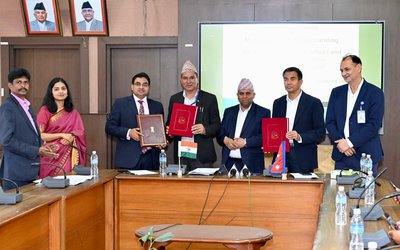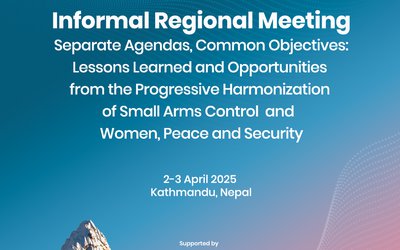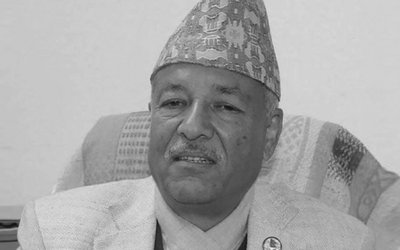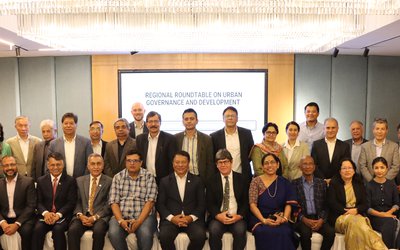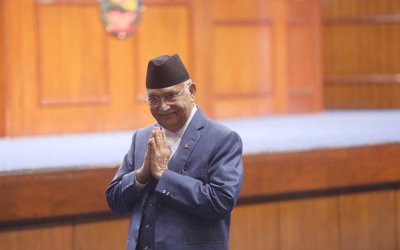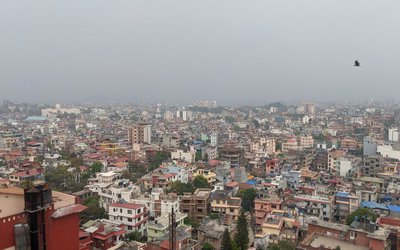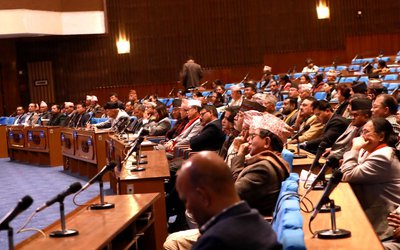
Just a day after the authorities launched the reconstruction work by distributing the first installment of cash in Singati Village Development Committee of Dolakha District, 130 kilometers east of capital, hailstorm and snowfall badly affected the shelters of earthquake victims in transitional homes in earthquake devastated areas of Gorkha, Rasuwa, Dhading, Sindhupalchowk and Dolakha.
The rainfall also affected earthquake victims of Bhaktapur in their temporary shelters. Although ten months have already passed, no sign is seen for a speedy reconstruction and relief for the affected people.
Disclosing the state of affairs, Nepal Reconstruction Authority’s Chief Executive Officer Sushi Gyawali conceded that victims will have to live in the transitional centers for another two to three years.
“Given the present scenario, I have to admit the fact that earthquake victims will have to live at least for two to three years in the present transitional shelters,” said Gyawali, releasing a report of findings on earthquake victims prepared by Humanitarian Accountability and Monitoring Initiative (HAMI). "Not only the government, we also will also monitor the accountability parts of NGOs and INGOs.”
Nepal Earthquake 2015: Building Resilience, Rebuilding Lives, sharing the findings from the ground, revealed that the government completely failed to fulfill its obligations to respect and protect the basic human rights of the affected families.
“Malpractices have escalated due to the vacuum in the local governance by elected representatives which triggered nepotism and abuse of authority during the relief distribution,” said the report.
Conducted with support from Oxfam and a Sweden-based INGO IM Global by local NGOs Jagaran Nepal and HAMI, the study covers six districts, Gorkha, Dolakha, Sindhupalchowk, Rasuwa, Nuwakot, Dhading and Kathmandu Valley.
The report conducted in November 2015 urged the government to urgently provide the appropriate models and funds for the earthquake resilient houses. The earthquake victims were totally unaware of critical information about government decisions and supports. Even people who have money are unable to build houses because they do not know what kinds of houses to build. They are waiting for government support to rebuild, repair or retrofit their home for the last eleven months, according to the report.
“Urgent measures should be adopted to protect women and girls residing in the camps and temporary shelters from gender based violence by strengthening prevention, monitoring and referral systems to encourage the reporting of gender based violence and the provision of counseling,” said Min Bahadur Shahi, convener of HAMI.
Although some earthquake victims of Dolakha district received the first installment of the grant from the government to rebuild their houses, it will take a long time to for others to receive the money.
The NAR has said that the first installment or 25 per cent of the total grant amount worth Rs 200,000 announced by the government to provide support in rebuilding of individual houses was distributed.
NAR will release the grant amount in three installments to the beneficiaries. The first installment of 25 per cent of the grant amount will be released to start construction of the house.
The second installment of 40 per cent will be released when the majority of the construction works are completed and the third installment of 35 per cent will be released during the time of roofing. The grant amount will be transferred to the quake victims through bank accounts.
As the Central Bureau of Statistics (CBS) is in the early stages of geological and household survey, it will take a long time to start the reconstruction in other areas. “The government should urgently commission geological survey in the earthquake affected districts and later to other remaining districts,” demanded HAMI. As the reconstruction of houses is going to take a long time, HAMI demanded that the housing reconstruction program must start immediately. “It is not possible for people to remain in insubstantial and inappropriate temporary accommodation for an extended period of time without there being long-term consequences to their personal health,” said Shahi.
As NGOs are asking accountability of government activities, NAR is preparing a guideline to mobilize assistance from non-governmental organizations for reconstruction and rehabilitation purposes. It has already announced measures to formulate and unveil all the required policies, guidelines and plans required to accelerate the reconstruction drive within three months.
“We will be accountable to the people. All INGOs and NGOs need to be accountable and transparent in their dealing,” said Gyawali.
- IME GROUP: Expands Into Paper Industry
- Mar 24, 2025
- CPN UML: Instigated By India
- Mar 23, 2025
- ADB’S CHIEF ECONOMIST: Nepal Reduces Poverty
- Mar 11, 2025
- FM DR. DEUBA: A Successful Visit
- Mar 11, 2025
- MD GHISING: Target Of Personal Grudge
- Mar 09, 2025

